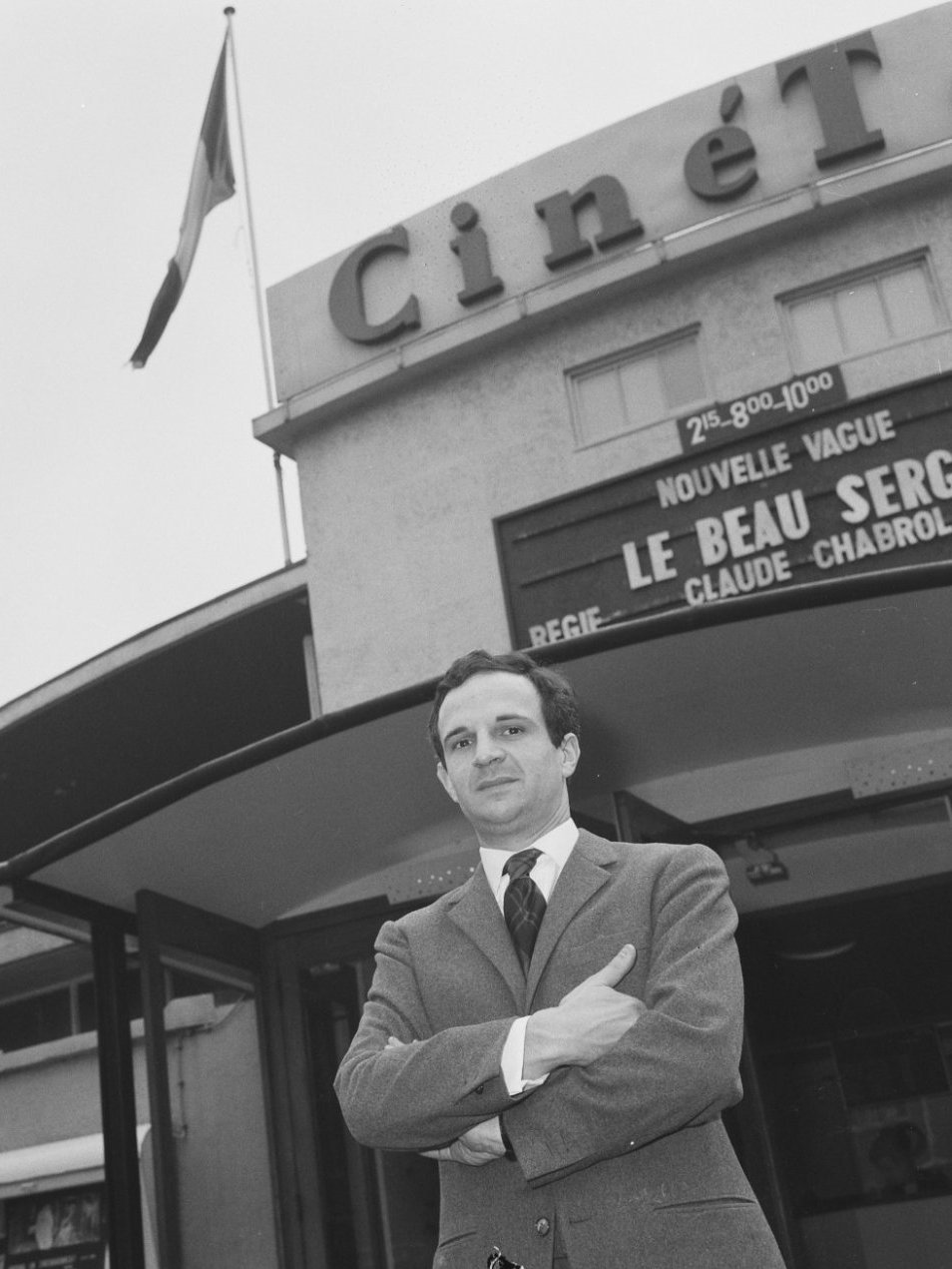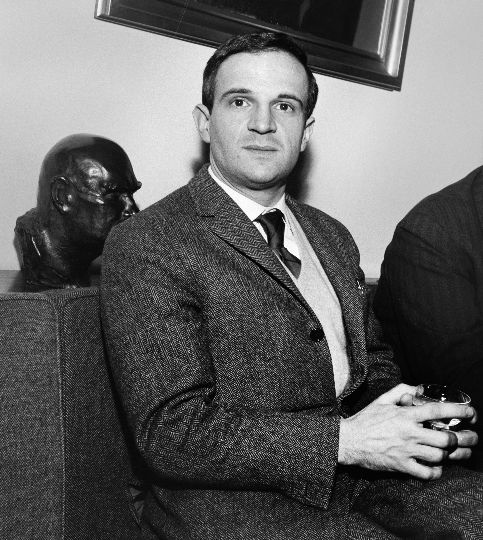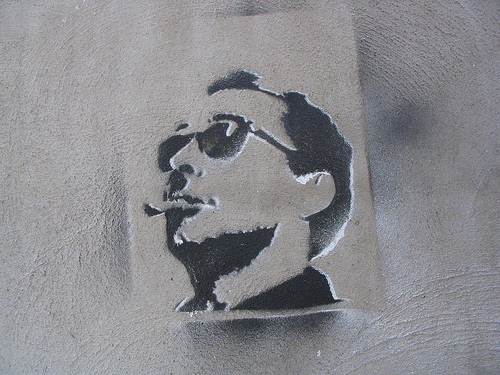|
Cinephile
Cinephilia ( ; also cinemaphilia or filmophilia) is the term used to refer to a passionate interest in films, film theory, and film criticism. The term is a portmanteau of the words '' cinema'' and ''philia'', one of the four ancient Greek words for love. A person with a passionate interest in cinema is called a cinephile ( ), cinemaphile, filmophile, or, informally, a film buff (also movie buff). To a cinephile, a film is often not just a source of entertainment as they see films from a more critical point of view. In English, ''cinephile'' is sometimes used interchangeably with the word ''cineaste'' ( ), though in the original French the term ' () refers to a filmmaker. Definition In a review of a book on the history of cinephilia, Mas Generis writes: "Cinephilia, despite its transparent etymological meaning—love of cinema—is a term that resists ready and shared understanding." Generis also introduces a quote from film scholar Annette Michelson that states that there is, " ... [...More Info...] [...Related Items...] OR: [Wikipedia] [Google] [Baidu] |
Jacques Rivette
Jacques Rivette (; 1 March 1928 – 29 January 2016) was a French film director and film critic most commonly associated with the French New Wave and the film magazine '' Cahiers du Cinéma''. He made twenty-nine films, including '' L'Amour fou'' (1969), '' Out 1'' (1971), '' Celine and Julie Go Boating'' (1974), and '' La Belle Noiseuse'' (1991). His work is noted for its improvisation, loose narratives, and lengthy running times. Inspired by Jean Cocteau to become a filmmaker, Rivette shot his first short film at age twenty. He moved to Paris to pursue his career, frequenting Henri Langlois' Cinémathèque Française and other ciné-clubs; there, he met François Truffaut, Jean-Luc Godard, Éric Rohmer, Claude Chabrol and other future members of the New Wave. Rivette began writing film criticism, and was hired by André Bazin for ''Cahiers du Cinéma'' in 1953. In his criticism, he expressed an admiration for American films – especially those of genre directors such a ... [...More Info...] [...Related Items...] OR: [Wikipedia] [Google] [Baidu] |
French New Wave
The New Wave (, ), also called the French New Wave, is a French European art cinema, art film movement that emerged in the late 1950s. The movement was characterized by its rejection of traditional filmmaking conventions in favor of experimentation and a spirit of iconoclasm. New Wave filmmakers explored new approaches to film editing, editing, visual style, and narrative, as well as engagement with the social and political upheavals of the era, often making use of irony or exploring existential themes. The New Wave is often considered one of the most influential movements in the history of cinematography, cinema. However, contemporary critics have also argued that historians have not sufficiently credited its female co-founder, Agnès Varda, and have criticized the movement's prevailing themes of sexism towards women. The term was first used by a group of French film critics and cinephiles associated with the magazine in the late 1950s and 1960s. These critics rejected the ("T ... [...More Info...] [...Related Items...] OR: [Wikipedia] [Google] [Baidu] |
François Truffaut
François Roland Truffaut ( , ; ; 6 February 1932 – 21 October 1984) was a French filmmaker, actor, and critic. He is widely regarded as one of the founders of the French New Wave. He came under the tutelage of film critic Andre Bazin as a young man and was hired to write for Bazin's ''Cahiers du Cinéma'', where he became a proponent of the auteur, ''auteur'' theory, which posits that a film's director is its true author. ''The 400 Blows'' (1959), starring Jean-Pierre Léaud as Truffaut's alter-ego Antoine Doinel, was a defining film of the New Wave. Truffaut supplied the story for another milestone of the movement, Breathless (1960 film), ''Breathless'' (1960), directed by his ''Cahiers'' colleague Jean-Luc Godard. His other notable films include ''Shoot the Piano Player'' (1960), ''Jules and Jim'' (1962), ''The Soft Skin'' (1964), ''Two English Girls'' (1971) and ''The Last Metro'' (1980). Truffaut's Day for Night (film), ''Day for Night'' (1973) earned him the BAFTA Awa ... [...More Info...] [...Related Items...] OR: [Wikipedia] [Google] [Baidu] |
Film
A film, also known as a movie or motion picture, is a work of visual art that simulates experiences and otherwise communicates ideas, stories, perceptions, emotions, or atmosphere through the use of moving images that are generally, since the 1930s, synchronized with sound and (less commonly) other sensory stimulations. Etymology and alternative terms The name "film" originally referred to the thin layer of photochemical emulsion on the celluloid strip that used to be the actual medium for recording and displaying motion pictures. Many other terms exist for an individual motion-picture, including "picture", "picture show", "moving picture", "photoplay", and "flick". The most common term in the United States is "movie", while in Europe, "film" is preferred. Archaic terms include "animated pictures" and "animated photography". "Flick" is, in general a slang term, first recorded in 1926. It originates in the verb flicker, owing to the flickering appearance of early films ... [...More Info...] [...Related Items...] OR: [Wikipedia] [Google] [Baidu] |
Cinema
Cinema may refer to: Film * Film or movie, a series of still images that create the illusion of moving image ** Film industry, the technological and commercial institutions of filmmaking ** Filmmaking, the process of making a film * Movie theater (US), called a cinema elsewhere, a building in which films are shown Music Bands * Cinema (band), a band formed in 1982 by ex-Yes members Alan White & Chris Squire * The Cinema, an American indie pop band Albums * ''Cinema'' (Andrea Bocelli album), released 2015 * ''Cinema'' (The Cat Empire album), released 2010 * ''Cinema'' (Elaine Paige album), released 1984 * ''Cinema'' (Nazareth album), or the title song, released 1986 * ''Cinema'', a 2009 album by Brazilian band Cachorro Grande * ''Cinema'', a 1990 album by English musician Ice MC (Ian Campbell), or the title song * ''Cinema'', a 2004 album by Portuguese musician Rodrigo Leão * ''Cinema'', a 2010 album by Karsh Kale * ''Cinema'', a 2021 album by The Marías Songs * "Cinema" ... [...More Info...] [...Related Items...] OR: [Wikipedia] [Google] [Baidu] |
World Cinema
World cinema is a term in film theory in the United States that refers to films made outside of the American motion picture industry, particularly those in opposition to the aesthetics and values of commercial American cinema.Nagib, Lúcia. "Towards a positive definition of world cinema." ''Remapping world cinema: Identity, culture and politics in film'' (2006): 30-37. The Third Cinema of Latin America and various national cinemas are commonly identified as part of world cinema. The term has been criticized for Americentrism and for ignoring the diversity of different cinematic traditions around the world. Types World cinema has an unofficial implication of films with "artistic value" as opposed to "Hollywood commercialism." Foreign language films are often grouped with " art house films" and other independent films in DVD stores, cinema listings etc. Unless dubbed into one's native language, foreign language films played in English-speaking regions usually have English su ... [...More Info...] [...Related Items...] OR: [Wikipedia] [Google] [Baidu] |
Alexandre Astruc
Alexandre Astruc (; 13July 192319May 2016) was a French film critic and film director. Biography Before becoming a film director, he was a journalist, novelist and film critic. His contribution to the auteur theory centers on his notion of the ''caméra-stylo'' or "camera-pen" and the idea that directors should wield their cameras like writers use their pens.Alexandre Astruc, "The Birth of a New Avant-Garde: La Caméra-Stylo," in ''The New Wave'', ed. Peter Graham, pp. 17-23. Trans. from "Naissance d'une nouvelle avant-garde: la caméra-stylo," ''L'Écran Français'' 144, 30 March 1948. In 1994, he was awarded the René Clair Award for his whole body of film work. Selected filmography ''(s) indicates films also co-scripted by Astruc'' *1949: ''Ulysse ou Les mauvaises rencontres'' also known as ''Aller et retour'', a short film; Astruc also wrote the scenario *1952: '' The Crimson Curtain'' (s) (Le rideau cramoisi) *1952: '' The Respectful Prostitute'' *1955: '' Les Mauvais ... [...More Info...] [...Related Items...] OR: [Wikipedia] [Google] [Baidu] |
Jean-Luc Godard
Jean-Luc Godard ( , ; ; 3 December 193013 September 2022) was a French and Swiss film director, screenwriter, and film critic. He rose to prominence as a pioneer of the French New Wave film movement of the 1960s, alongside such filmmakers as François Truffaut, Agnès Varda, Éric Rohmer and Jacques Demy. He was arguably the most influential French filmmaker of the post-war era. According to AllMovie, his work "revolutionized the motion picture form" through its experimentation with narrative, continuity, sound, and camerawork. During his early career as a film critic for '' Cahiers du Cinéma'', Godard criticized mainstream French cinema's "Tradition of Quality" and championed Hollywood directors like Alfred Hitchcock and Howard Hawks. In response, he and like-minded critics began to make their own films, challenging the conventions of traditional Hollywood in addition to French cinema. Godard first received global acclaim for '' Breathless'' (1960), a milestone in t ... [...More Info...] [...Related Items...] OR: [Wikipedia] [Google] [Baidu] |
Claude Chabrol
Claude Henri Jean Chabrol (; 24 June 1930 – 12 September 2010) was a French film director and a member of the French New Wave (''nouvelle vague'') group of filmmakers who first came to prominence at the end of the 1950s. Like his colleagues and contemporaries Jean-Luc Godard, François Truffaut, Éric Rohmer and Jacques Rivette, Chabrol was a Film criticism, critic for the influential film magazine ''Cahiers du Cinéma'' before beginning his career as a film maker. Chabrol's career began with ''Le Beau Serge'' (1958), inspired by Alfred Hitchcock, Hitchcock's ''Shadow of a Doubt'' (1943). Thrillers became something of a trademark for Chabrol, with an approach characterized by a distanced objectivity. This is especially apparent in ''Les Biches (film), Les Biches'' (1968), ''The Unfaithful Wife, La Femme infidèle'' (1969), and ''The Butcher (1970 film), Le Boucher'' (1970) – all featuring Stéphane Audran, who was his wife at the time. Sometimes characterized as a "mainstrea ... [...More Info...] [...Related Items...] OR: [Wikipedia] [Google] [Baidu] |
Jacques Doniol-Valcroze
Jacques Doniol-Valcroze (; 15 March 1920 – 6 October 1989) was a French actor, critic, screenwriter, and director. In 1951, Doniol-Valcroze was a co-founder of the renowned film magazine '' Cahiers du cinéma'', along with André Bazin and Joseph-Marie Lo Duca. The magazine was initially edited by Doniol-Valcroze between 1951–1957. As critic, he championed numerous filmmakers including Orson Welles, Howard Hawks, and Nicholas Ray. In 1955, then 23-year-old François Truffaut made a short film in Doniol-Valcroze's apartment, '' Une Visite''. Jacques's daughter Florence played a minor part in it. In 1955, he was a member of the jury at the 16th Venice International Film Festival, and in 1964 a member of the jury at the 14th Berlin International Film Festival. New Wave In his thirties he played a pivotal role in the French New Wave, discussing the beginnings of "the new cinema" as the co-founder of '' Cahiers du cinéma'' and defended Alain Robbe-Grillet. Jean Douchet wrot ... [...More Info...] [...Related Items...] OR: [Wikipedia] [Google] [Baidu] |
Film Criticism
Film criticism is the analysis and evaluation of films and the film medium. In general, film criticism can be divided into two categories: Academic criticism by film studies, film scholars, who study the composition of film theory and publish their findings and essays in books and journals, and general Journalism, journalistic criticism that appears regularly in press newspapers, magazines and other popular mass-media outlets. Academic film criticism rarely takes the form of a review; instead it is more likely to analyse the film and its place in the history of its genre, the industry and History of film, film history as a whole. Film criticism is also labeled as a type of writing that perceives films as possible achievements and wishes to convey their differences, as well as the films being made in a level of quality that is satisfactory or unsatisfactory. Film criticism is also associated with the journalistic type of criticism, which is grounded in the media's effects being ... [...More Info...] [...Related Items...] OR: [Wikipedia] [Google] [Baidu] |
André Bazin
André Bazin (; 18 April 1918 – 11 November 1958) was a renowned and influential French film critic and film theorist. He started to write about movies in 1943 and was a co-founder of the renowned film magazine '' Cahiers du cinéma'' in 1951 alongside Jacques Doniol-Valcroze and Joseph-Marie Lo Duca. He is notable for arguing that realism is the most important function of cinema. His call for objective reality in film, as understood through the use of deep focus as well as the lack of montage, were linked to his belief that the interpretation of an entire movie or a specific scene should be left to the spectator. This placed him in opposition to prior film theorists, such as many writing during the 1920s and 1930s, who had emphasized how the cinema could manipulate reality. Bazin insisted that movies morally should serve as personalized projects by their directors to the degree that each and every one represents a director's individual vision, which reflected his broader p ... [...More Info...] [...Related Items...] OR: [Wikipedia] [Google] [Baidu] |






